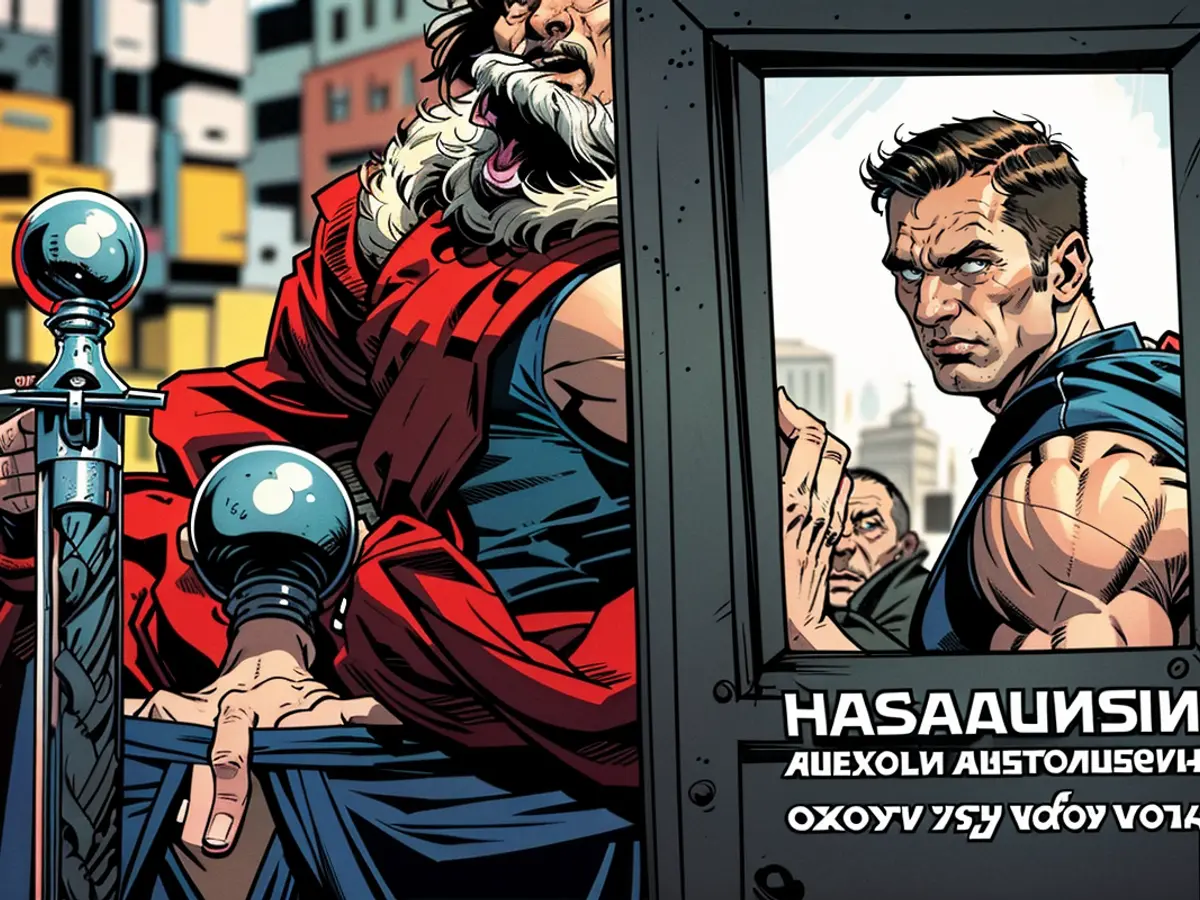- One thing is missing from the exchange: the particular tragedy of the Alexei Navalny case.
Jubilation all around, jubilation from relatives and praise from all involved: After the successful prisoner exchange between the West and Russia, the world breathes a sigh of relief. The only downer: Putin's most prominent opponent didn't make it alive onto the plane that originally had a seat reserved for him: Alexei Navalny.
Everything had to remain secret. It was only a few hours before the spectacular exchange between East and West that there were concrete signs. In Russia and Belarus, state officials drove prisoners to the airport to put them together onto a plane to the West.
A Deal Too Many?
They were all considered hostages of Putin and had been convicted in sham trials for often absurd offenses. For example, the German Patrick S. was expecting up to seven years in prison for allegedly smuggling a bag of cannabis gummy bears into St. Petersburg. The sentences were partly absurdly high. The now-exchanged former US soldier Paul Whelan was to spend 16 years in a labor camp for allegedly receiving a USB stick with alleged secret information.
The assessment of CDU foreign policy expert Roderich Kiesewetter, who speaks of hostage diplomacy, is likely shared by many. He suspects that an exchange was already planned at the time of the convictions.
The West also prepared for the exchange in a similarly clandestine manner. It was only the surprising pardon of Rico K., who was facing the death penalty in Belarus, that indicated that a window for a prisoner exchange had opened at short notice.
At the top of Putin's wish list was apparently Vadim Krasikov, the so-called "Tiergarten murderer". However, his release seemed impossible - Germany's chief federal prosecutor was against it, it is said. Only an urgent intervention by Justice Minister Marco Buschmann, who ordered the release, saved the deal.
Alexei Navalny's Long Struggle
A deal that was apparently also supposed to include Alexei Navalny.
Russia's most prominent Putin opponent was poisoned in January 2021 and subsequently treated in Germany, among other places. After his voluntary return to Russia, Navalny was sentenced to a three-and-a-half-year prison term in February 2021. The sentence was later increased to a total of 19 years of hard labor in further trials.
All verdicts were internationally assessed as politically motivated. On February 16, 2024, Navalny died under unclear circumstances in a Siberian labor camp. His mother, Lyudmila, was informed that the cause of death was a "sudden death syndrome", a kind of instant death. However, neither this information nor the details of the time and circumstances of death could be definitively confirmed.
Too Late for Navalny
It is now clear: Navalny was also and above all on the West's wish list. He was supposed to be on the plane with those to be freed. "We were working with our partners on an agreement that would also have affected Alexei Navalny," said Jake Sullivan, the US National Security Advisor, in response to a question in Washington. There was already a well-advanced plan in the days around the Munich Security Conference in February 2024 to free Navalny through an exchange. Then he died.
The timing of this is hard to beat in terms of tragedy. If Navalny had lived for another half a year, he would likely have been released.
Reaction from Julia Navalnaya
His widow, Julia Navalnaya, has already reacted to the deal with Putin. She described the results in an online message as "great joy". Every release of a political prisoner is "a huge victory and a reason to celebrate". No one should be "hostage" to Kreml chief Vladimir Putin and suffer torture and die in "Putin's prisons".
Acknowledging the tragedy of her late husband, she continues to advocate for many other dissidents. Currently, "Daniel Kholodny, Vadim Kobzev, Alexei Liptser, Igor Sergunin and others" are affected and need help. She demands "freedom for all political prisoners".
The President of the United States, Jake Sullivan, confirmed that Alexei Navalny was also part of the prisoner exchange negotiations with Russia. Despite the tragedy of Navalny's untimely death, his widow, Julia Navalnaya, expressed joy at the releases and continued to advocate for other political prisoners.








